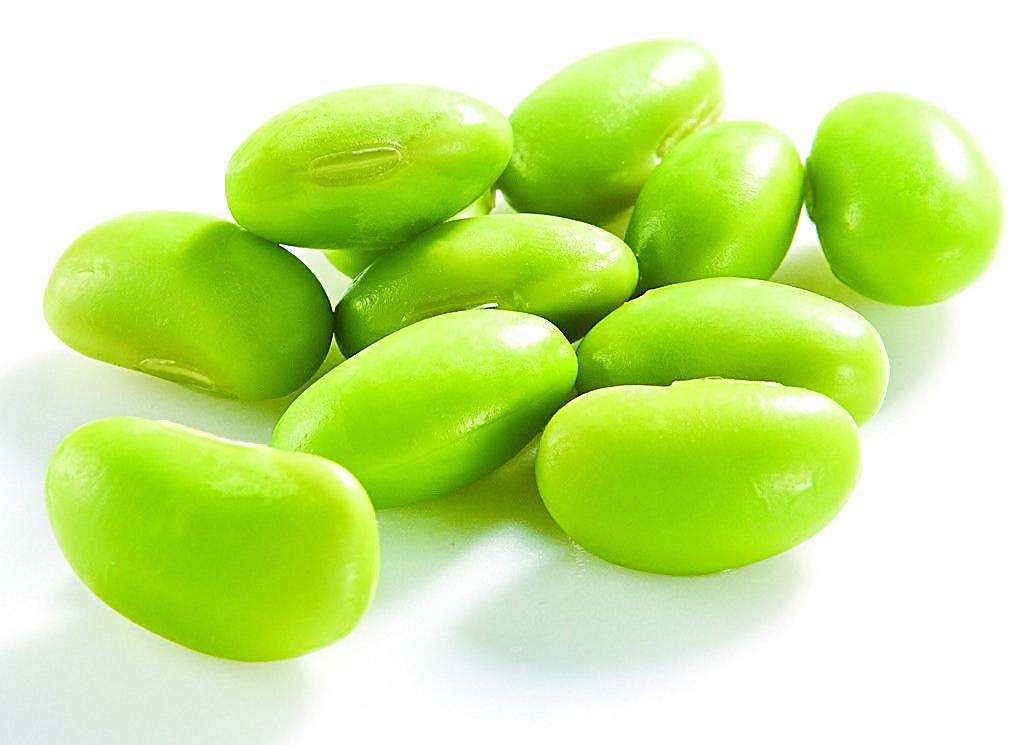(单词翻译:单击)
What to know before eating forms of soy like tofu, tempeh, soy milk, and edamame.
在吃大豆制品,比如豆腐、天培、豆浆和毛豆之前,我们需要知道些什么呢?
Soy has gotten a bad rap over the years, but it can be a smart addition to your diet if you eat it the right way. Soy provides a variety of nutrients, including omega-3 fatty acids and fiber. Some forms of soy, like tofu and tempeh, are also healthy alternatives to animal proteins. (Animal sources of protein can have more heart-harming saturated fat than plant-based sources.) If eating more soy helps you displace some meat in your diet, great.
近年来,大豆臭名在外,但如果吃的正确,大豆还是明智的选择。大豆提供多种营养物质,包括欧米茄3脂肪酸和纤维素。一些大豆制品,比如豆腐和天培也是代替动物蛋白的健康选择。(动物蛋白质来源比植物蛋白质来源含有更多的有害心脏的饱和脂肪。)如果多吃大豆能减少你饮食中的肉类,那就太棒了。

The debate over soy mainly has to do with phytoestrogens, which are plant-derived compounds (found in soybeans) that were believed to behave similarly to estrogen in the body. For years, there's been a concern that soy may promote the growth of hormone-sensitive breast cancers. Science has gone back and forth on whether phytoestrogens are beneficial or carry health risks. But the latest research suggests that soy phytoestrogens don't work exactly like estrogen.
有关大豆的争论主要与植物雌激素有关,来源于植物的化合物(在大豆中发现)--植物雌激素被认为与人体内的雌激素相似。多年来,人们一直担心大豆可能会促进激素敏感性乳腺癌的滋生。科学反复研究植物雌激素到底是有益人体健康还是携带了健康风险。但最近的研究表明大豆植物雌激素与雌激素的作用并非完全一样。
In fact, recent large analyses have concluded that a diet high in soy does not increase the chances of developing breast cancer and may even reduce the risk, though more research is needed to support the latter finding. (It's also worth noting that there's little research on breast health and soy supplements, which are more concentrated and stripped of other nutrients, so they're not currently recommended.) Studies have also shown that a diet high in soy whole foods may help lower heart disease risk and reduce menopause-related hot flashes.
事实上,最近大量的分析得出了这样的结论:大豆含量高的饮食并不会增加患乳腺癌的风险,而且甚至可能降低风险,但需要更多的研究证实后者。(值得一提的是,有关乳腺健康和大豆补充剂的研究十分少,这一补充剂的营养更集中,缺少其它营养物质,因此目前尚不推荐食用。)研究还表明:大豆全食含量高的饮食或能帮助降低心脏病风险、降低与更年期相关的潮热。
My verdict: It's safe to eat one or two servings of soy a day, as long as it's from a natural source or minimally processed. Good options include three ounces of tofu, a half cup of edamame, a cup of soy milk, or one-third cup of soy nuts.
我的意见:每天吃一两次大豆是完全没有问题的,只要大豆制品的来源是天然的,或是最少加工处理的。好的选择包括3盎司的豆腐,半杯毛豆,一杯豆浆或三分之一杯大豆仁。
译文属可可原创,仅供学习交流使用,未经许可请勿转载


